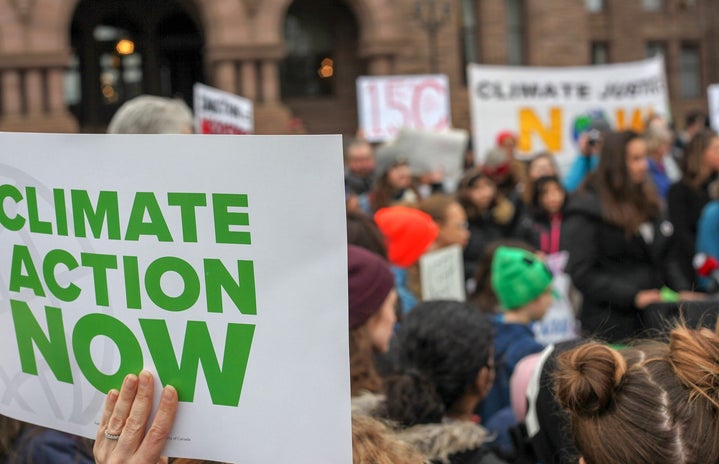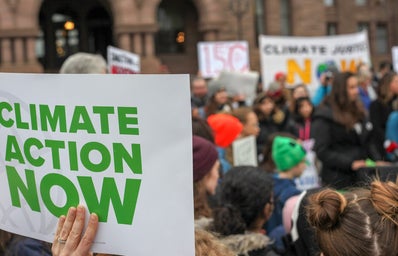When I was younger, I couldn’t envision a future in which my children would be able to live a fulfilling or even safe life due to the ever-present threat of global warming. Now, I’m in my twenties, and that vision seems even darker than when I was younger. Amid the burning forests, rising heat, and melting ice, I wonder how it is even possible for me to spend a day without thinking about the state of the planet, let alone imagine a future where I am able to have children and see a viable future for them.
“Climate anxiety” is a new term that has been coined to describe the psychological state of feeling anxious and upset, as we are imprisoned between the truth of global warming and inaction from the rest of the world. It’s not as rare as you might think. In a survey done by a team of psychologists,10 000 people between 16 and 25 from northern and southern countries were interviewed. It was revealed that 77% feel that the future is scary, 68% feel sad, 63% feel anxious, and 39% feel hesitant to consider having children.
And it’s only going to get worse. As the effects of global warming increase, more people will need to address the growing anxiety, depression, and insecurities stemming from the climate crisis. However, there are some effective ways to combat climate anxiety.
Address your feelings when you feel them.
Climate anxiety is not something to feel ashamed of or alone in. It’s a natural response to the world around us. Further, it’s not effective to shove down feelings of anxiety. As with all feelings, a repression of feelings can lead to even greater anxiety or burn-out from the emotions we feel. The climate anxiety we feel doesn’t have to be daunting. Rather, it can be a tool to effectively unpack how we approach a world with a climate crisis.
Talk to other people about it.
As with all forms of anxiety, it’s important to voice our feelings and connect with others. It’s even more important with climate anxiety, since it’s a common feeling. Try talking about it with your friends, family, or others — the reality is that they are probably feeling the same uneasiness. Some clubs have even been established to initiate this. For instance, informal gatherings called Climate Cafes aim to create conversations among people about their reactions to the climate crisis.
Take action in a meaningful way.
Part of the scary part of the climate crisis is the feeling of total submission and lack of agency in the world. It seems like no matter how much I want leaders to create policies that effectively approach the climate crisis, they don’t. It can leave us feeling like we have no power. But the power of the people is a useful method to enact change. Try to get involved in political groups that advocate for legislative action regarding climate change. Furthermore, change small aspects in your life, such as buying locally, cutting out meat in your diet, or buying clothes second-hand.
Reconnect with nature.
One of the most useful activities to combat climate anxiety is to reconnect with nature in a meaningful way that both mentally restores us and reminds us of the beauty of nature. It improves attention, lowers anxiety, improves your mood, and increases empathy. Whenever we feel discouraged by the climate crisis, we should involve ourselves in more positive feelings about nature. Activities like taking a walk, going on a bike ride, or even sitting under a tree can help us reposition our feelings of negativity into feelings of connection and love.
Understand that it is not your fault.
Oftentimes, I feel a very prominent guilt that I am not doing enough to combat climate change. While it is useful to change our lives in small ways to help fight against climate change, it is not accurate to place all the guilt upon ourselves. Just 100 companies are responsible for 71% of global emissions. So while it’s important we recognize our individual footprint, it’s equally important that we don’t equate our own needs-based decisions (like choosing to buy meat sometimes because it’s cheaper than vegan alternatives) to the carbon footprint of major corporations that continuously make decisions to pollute the earth.
Climate anxiety is something that we all feel, especially younger generations that have been raised in an atmosphere that consistently speaks about the ills of climate change. It’s difficult to spend most of your childhood and adulthood thinking about what problems we will have to deal with in the future and even more frustrating to see our politicians shirking off responsibility and agency. However, by utilizing the techniques listed above, we can learn to quell our climate anxiety in productive, calming ways that lead to greater change. Together, we will learn to sit with our climate anxiety and moreover, we can find more productive ways of channeling it into change and reform.
Resources:
https://www.theguardian.com/commentisfree/2021/nov/04/climate-depression-youth-crisis-world-leaders


